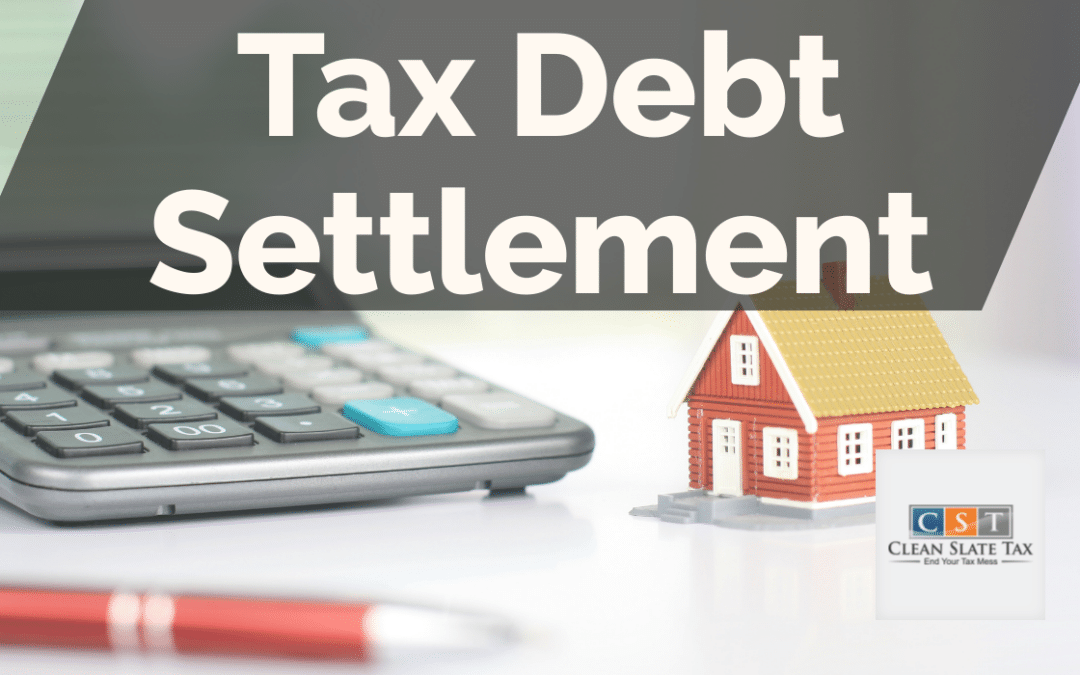Tax Debt Settlement – How to Solve Your IRS Problems
Are you struggling with unmanageable tax debt? Have you received a notice from the IRS demanding immediate payment? If so, you are not alone. Many Americans find themselves in similar situations, unable to pay their taxes and facing mounting penalties and interest charges. However, there is a solution – tax debt settlement.
What is Tax Debt Settlement?
Tax debt settlement is a legal agreement between you and the IRS to resolve your tax debt for less than what you owe. It is also known as an offer in compromise. This solution is designed for individuals who cannot pay their full tax liability and are experiencing economic hardship. It allows taxpayers to negotiate a settlement with the IRS to reduce their tax debt to a manageable level and pay it off over time.
How Does Tax Debt Settlement Work?
To qualify for tax debt settlement, you must first apply and meet specific eligibility requirements. These requirements include demonstrating that you cannot pay your full tax liability without causing financial hardship. You must also have filed all your tax returns and made all required estimated tax payments.
Once your eligibility is confirmed, you will then need to submit a proposed offer to the IRS. Your offer must be based on the amount you can afford to pay and should reflect your current financial situation. The IRS will then evaluate your offer based on several factors, such as your income, expenses, assets, and future earning potential.
If your offer is accepted, you will be required to make a lump-sum payment or a series of payments to the IRS over a period of time. In return, the IRS will release any tax liens and stop all collection actions against you.
What Are the Benefits of Tax Debt Settlement?
There are several benefits to tax debt settlement, including:
- Reduced tax debt – You will pay a lesser amount than what you owe, sometimes as much as 90% less
- Elimination of penalties and interest charges
- Stop IRS collection actions and tax liens
- Flexible payment terms – You can pay the settlement amount in installments over time
- Peace of mind – You will no longer have to worry about your IRS debt and can focus on rebuilding your financial security
What Are the Risks of Tax Debt Settlement?
While tax debt settlement can be a great solution for those who cannot afford to pay their full tax liability, it is not without risks. Some of the risks of tax debt settlement include:
- Application fees – You will need to pay a non-refundable fee when applying for tax debt settlement
- Complexity – The process of applying for tax debt settlement can be complicated and confusing
- Low acceptance rates – A majority of tax debt settlement applications are denied by the IRS
- Payment terms – You will need to make payments to the IRS according to the terms of your settlement agreement. Failure to do so could result in additional penalties and interest charges.
Is Tax Debt Settlement Right for Me?
Tax debt settlement is a great option for those struggling with unmanageable tax debt. However, it may not be the best solution for everyone. Before considering tax debt settlement, it is essential to consult a tax professional and understand all your options. You may also qualify for other IRS programs, such as an installment agreement or hardship relief.
How Do I Apply for Tax Debt Settlement?
To apply for tax debt settlement, you will need to complete IRS Form 656, Offer in Compromise. You will also need to provide detailed financial information about your income, expenses, and assets. It is highly recommended that you seek assistance from a tax professional or attorney when completing this form.
What Happens If My Offer is Denied?
If your offer is denied, the IRS will send you a letter explaining why it was denied and providing you with options on how to proceed. You can appeal the decision or choose to enter into another IRS program, such as an installment agreement or hardship relief.
Conclusion
Tax debt settlement can be a great solution for those struggling with overwhelming tax debt. However, it is critical to understand the risks and benefits of this program and consult a tax professional before proceeding. With the right guidance, you can resolve your tax debt and regain your financial freedom.





